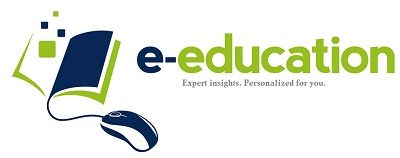If the right entry option to Early College High School were to be picked, it may be a crucial milestone that brings depressing or gratifying memories for the student in the years to come. The broader availability of programs for students and their families shows that they need to be watchful about their different options and look closely at the admission requirements and guidelines that will bring them closer to their goals.
Here are several tips to consider when making this critical choice:
Research the Program Structure: Early college programs in high schools initially differ in their program structures. So, one should do small-scale research work and be informed about each school’s procedure. Some ECHS programs may allow a student to complete their high school education with college courses over four years, while others would require a more accelerated pace. If you are unsure about the structure you might want to adopt, consider the structure that best fits your academic goals and learning style.
Evaluate Academic Rigor:Learn more about the rigorous academic program at ECHS. This means that you need to make every effort to see that what you study requires a lot of hard work and that you will be adequately prepared for what university demands. Ensure you look at the curriculum, check the available courses, and look for advanced placement opportunities or dual enrollment courses.
Assess College Partnerships:Cooperative agreements with the colleges/universities is one practice ECHS programs use to incorporate college-level courses. Verify the efficacy of collaborations and other cases of cooperation with those organizations as well as the institutions being mentioned. Powerful collaborations, conversely, can become a gateway to a more diversified collection of disciplines, resources, academic advising, and much more.
Consider College Credits: Attending an early college high school attracts its main advantages in accumulating college credits during high school. Judge the degree of credit transference to colleges and universities you might plan to attend after high school. Learn about schemes where your college aligns with good colleges for mutual credit transfer.
Seek Student and Parent Feedback: Get to know the current students and parents who might have some plans that can provide you with sufficient information about ECHS. Share your experiences and tell future students the things that worked for you and those that could improve, as well as their advice. Their perspective can reveal how well the company fits into your strategy, aiding decision-making.
Consider Your Long-Term Goals: You need to bear in mind what you want to do in the future, entrance exams, and your education and career goals when choosing an ECHS. Picture what the program means for your goal and if it is important. Shall it give you a foundation for your dreams? Make sure that career exploration, college preparation, and possible internship positions you have will eventually prepare you for a career.
Visit the Campus: If you can, stroll around the ECHS campus to get a feel of the surroundings, traditions, and equipment before making the final decision. Join orientation meetings, take the campus tour, and interact with teachers and administrators to gain a broader feel and all the necessary information. The campus visit will help you feel like you are part of the campus community. It will assist you in the decision-making.
Final Thoughts
Making an informed college decision is the basis for later career success, and it impacts your future studies and professional goals. By focusing on the program designations, curricular offerings, support programs, and partnerships between programs and colleges, students can make the choice that will steer them toward achievement. Eventually, a rigorous and active early College high school will not only lend unbelievable academic strengths but also ensure that a student will flourish both personally and professionally by providing them with the necessary tools and skills needed to embark on a successful career.

